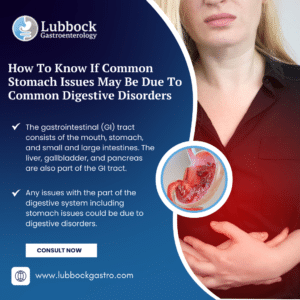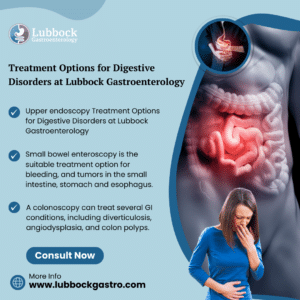How To Know If Common Stomach Issues May Be Due To Common Digestive Disorders

How To Know If Common Stomach Issues May Be Due To Common Digestive Disorders
The gastrointestinal (GI) tract consists of the mouth, stomach, and small and large intestines. The liver, gallbladder, and pancreas are also part of the GI tract. Any issues with the part of the digestive system including stomach issues could be due to digestive disorders.
It’s important to know that although not common, disorders affecting some other systems may present similar effects to the digestive system.
People may experience stomach issues for reasons ranging from eating habits or gastrointestinal disorders. Common symptoms of stomach issues include vomiting, cramps, and altered bowel changes.
Many of these stomach issues may pass with time and pose little risk of complication. You should try to understand the signs and symptoms of common digestive disorders to identify them and seek relevant treatment easily.
Early Signs Of Gastrointestinal Disease
Many gastrointestinal conditions present with similar signs and may require an expert to help you determine what the cause and condition are. The following symptoms are early signs of gastrointestinal diseases.
- Abdominal pain or cramping
- Bloating
- Diarrhea
- Change in bowel habits
- Constipation
- Weakness or fatigue
- Incomplete bowel movements
- Bloody stools
- Unexplained weight loss
Common Causes Of Functional Gastrointestinal Diseases
Functional gastrointestinal disorders (FGIDs) are disorders that are characterized by recurrent gastrointestinal symptoms. FGIDs are prevalent in adults, adolescents, and children.
FGIDs cause sensitivity and a variety of symptoms in the gastrointestinal (GI) tract. According to experts, FGIDs are disorders of gut-brain interaction.
Common causes of FGIDs are stress and smoking. Other causes of FGIDs include:
- Central nervous system processing
- Anxiety and depression
- Family history
- Gut sensitivity
- GI movements that are too fast or slow
- Immune system functioning
7 Common Digestive Disorders
Gastroesophageal Reflux Disease (GERD)
Gastroesophageal reflux disease (GERD) occurs when gastric acid repeatedly flows back into the tube (esophagus) connecting your mouth and stomach.
Acid reflux irritates the lining of your esophagus and the common signs and symptoms of GERD include heartburn that usually occurs after eating and worsens at night or while lying down, food and drink regurgitation, upper abdominal or chest pain, difficulty in swallowing, the sensation of a lump in your throat, persistent cough, and laryngitis.
Schedule an appointment with your doctor if you notice any of these signs or symptoms. If you also experience severe or frequent GERD symptoms, you should see a specialist.
Chronic Diarrhea
Diarrhea is one of the common digestive disorders. It means having loose and watery stools. Diarrhea becomes chronic when you’re passing out three or more loose stools daily for at least four weeks. There are many possible causes of chronic diarrhea but diet and medications are the common causes.
Certain foods and drinks can cause diarrhea. Your stomach can be sensitive to certain foods and drinks which can lead to chronic diarrhea. Chronic diarrhea can also be a side effect of certain medications.
Chronic diarrhea is associated with severe complications such as severe dehydration and electrolyte losses. Contact a specialist if you cannot resolve your diarrhea at home. Treatment for chronic diarrhea is focused on treating the underlying cause of diarrhea or avoiding the food or drink causing the diarrhea.
Chronic Constipation
Another common digestive disorder is constipation Constipation is the opposite of diarrhea. It means passing fewer than three stools a week or having difficulty in passing stool. Constipation becomes chronic when it occurs for a long period.
Constipation is usually due to a lack of dietary fiber, fluids and exercise. In addition to these, medications like narcotics containing codeine, oxycodone, and hydromorphone, as well as nonsteroidal anti-inflammatory drugs (NSAIDs) can cause constipation.
Medical conditions like underactive thyroid gland (hypothyroidism), diabetes, uremia, hypercalcemia, and colorectal cancer can cause chronic constipation.
Gastroenteritis
Gastroenteritis means inflammation of the stomach and intestine. Viruses or bacteria could cause it. Gastroenteritis usually results in diarrhea, vomiting, stomach pain, cramping, fever, nausea, and headaches.
The common cause of gastroenteritis is a virus, contaminated food or water, or poor personal hygiene.
Heavy metals (arsenic, cadmium, lead, or mercury) in drinking water, eating acidic foods like citrus fruit and tomatoes, and medications such as antibiotics, antacids, laxatives, and chemotherapy drugs can also cause gastroenteritis.
Irritable Bowel Syndrome
Irritable bowel syndrome (IBS) is a functional gastrointestinal disorder. IBS has different types but the most common symptoms associated with all irritable bowel syndrome are stomach pain, and changes in your bowel movements, which may be diarrhea, constipation, or both, and bloating.
IBS is a chronic disorder that can be painful and last for years. However, the symptoms resolve and reoccur.
The exact causes of IBS haven’t been discovered but experts think that a combination of problems may lead to IBS. It’s thought to be a disorder originating due to problems with brain-gut interaction.
Hemorrhoids
Hemorrhoids are dilated or swollen veins in the lower part of the anus and rectum that cause pain or discomfort. It’s associated with bleeding, itching or irritation in the anal area, discomfort, pain or soreness around the anus, lumps, and swelling in the anal region.
The common causes of hemorrhoids include pregnancy, diarrhea, constipation, sitting for too long, and eating low-fiber foods.
Ulcerative Colitis
Ulcerative colitis (UC) is an inflammatory bowel disease that results in irritation, inflammation, and ulcers in the lining of the large intestine. It doesn’t have a cure and similar to irritable bowel syndrome, its symptoms come and go.
The specific cause of this disorder is unknown but research has shown that the genes may play a role; as the disease sometimes runs in families. Age, ethnicity and family history are common risk factors for this condition.
Ulcerative colitis is more prevalent in people of Ashkenazi Jewish descent and having a close relative with the condition increases your risk to up to 30%.
How to Improve Digestion: Tips and tricks
Below are tips and tricks to help improve your digestion.
Eat more fiber
Eating more fiber helps boost your digestive system and regulate your bowel movement. In addition to improving digestion, it has many other health benefits, including lowering cholesterol and reducing the risk of heart disease. Sources of fiber include beans, whole grains, vegetables, and fruits.
Exercise
Mild to moderate exercise also promotes healthy digestion. Being upright and active allows gravity to favor food movement through the gastrointestinal tract. Avoid strenuous or intense exercise and engage in mild to moderate physical activity.
Relaxation
Stress can cause discomfort that may negatively influence your digestion. Physical and mental health are strongly connected. To boost your digestive health, try to relax and minimize stress. Also, make sure you get enough quality sleep.
Reduce gas
Trapped gas in the stomach can get so uncomfortable. You should actively try to reduce gas in your gut for better digestion. Gas usually enters the stomach when you swallow air while eating or drinking. The gas produced during food digestion can also be trapped in the gastrointestinal tract resulting in bloating and stomach discomfort.
Activities like chewing gum, drinking carbonated drinks, eating too quickly, and eating foods that produce more gas when they go through the digestive system should be avoided to reduce gas.
When to Contact a Doctor for Digestive Disorders
When you notice that medical concerns related to your gastrointestinal tract persist for long, you may need to seek the help of a doctor. It’s recommended to seek a reputable gastroenterologist that will provide you with more specific care. Your healthcare provider can also refer you to a specialist if there’s a need for one.
Treatment Options for Digestive Disorders at Lubbock Gastroenterology

Treatment Options for Digestive Disorders at Lubbock Gastroenterology
Specialists at Lubbock Gastroenterology will review your condition and create the appropriate treatment plan. The treatment options available at Lubbock Gastroenterology for digestive disorders include:
Upper endoscopy
An endoscope is a thin, flexible tube with a camera on the end. It is used to treat disorders of the gastrointestinal tract and confirm diagnoses before treatment.
Small bowel enteroscopy
This is the suitable treatment option for bleeding, and tumors in the small intestine, stomach and esophagus.
Colonoscopy
An endoscope examines the large intestine and rectum for polyps and tumors. A colonoscopy can treat several GI conditions, including diverticulosis, angiodysplasia, and colon polyps.
Sigmoidoscopy
Similar to colonoscopy and upper endoscopy, it’s used to treat digestive disorders involving the rectum and lower colon.
Lubbock has many other invasive and noninvasive treatment options for digestive disorders. However, you need to schedule an appointment so we can get your condition assessed to help determine the best treatment for you.
FAQ
Can GI problems cause mental problems?
GI problems can also cause mental problems such as anxiety and depressive disorders.
What are the common digestive problems related to nutrition?
The common digestive problems include acid reflux, diarrhea, vomiting, and constipation.
